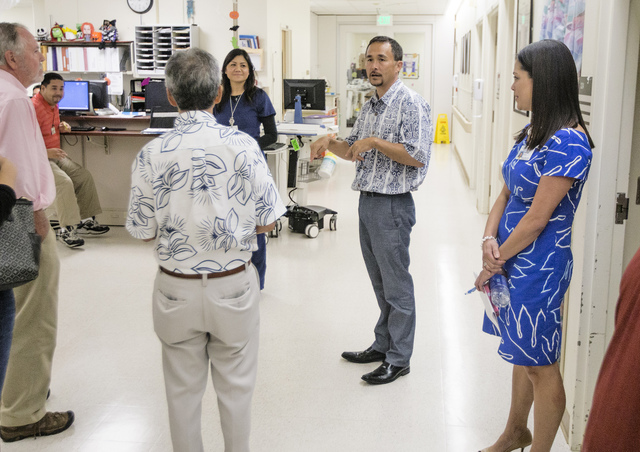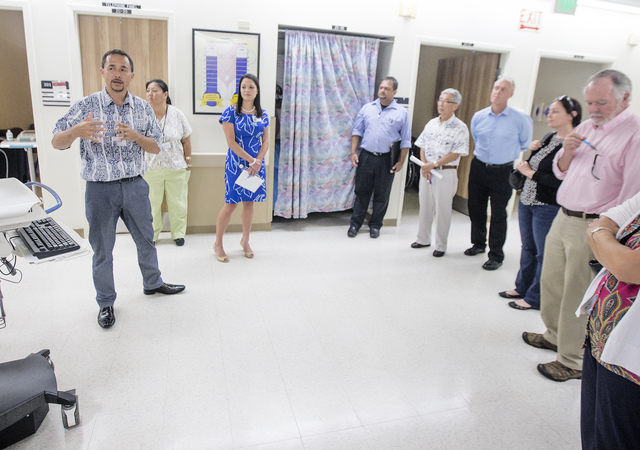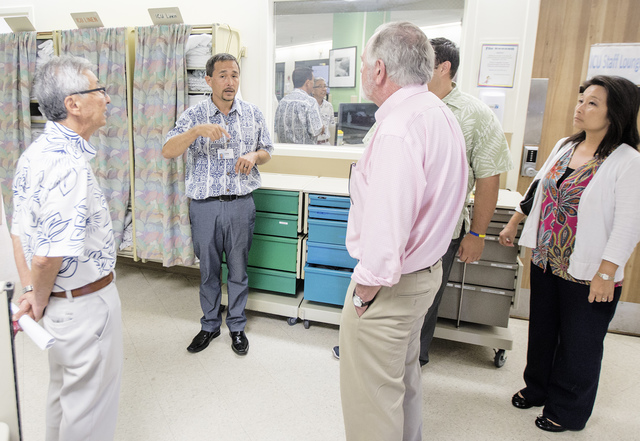Hawaii Health Systems Corp.’s East Hawaii Region could face another $7 million shortfall next fiscal year and the possibility of more painful budget cuts, administrators told state legislators Monday. ADVERTISING Hawaii Health Systems Corp.’s East Hawaii Region could face another
Hawaii Health Systems Corp.’s East Hawaii Region could face another $7 million shortfall next fiscal year and the possibility of more painful budget cuts, administrators told state legislators Monday.
HHSC East Hawaii Regional CEO Dan Brinkman said the estimate was based on current funding levels as set in last year’s biennium budget, without knowing what additional appropriations might be approved by the Legislature during the next session.
“So, what are we going to do if we have these various deficits?” he said. “… I’ve already started a planning process to be able to have some idea how to bring our numbers back to where we can stay sustainable. Unfortunately, that often requires cuts.”
This summer, HHSC’s East Hawaii facilities — including Hilo Medical Center, Ka‘u Hospital and Hale Ho‘ola Hamakua — began making cuts to services and cutting 87 employee positions to make up a $7 million shortfall for fiscal year 2016.
The projected shortfall for next year will necessitate additional cuts that could seriously undermine the quality of care provided to Big Isle residents, said East Hawaii Regional Board Chairman Kurt Corbin.
“The layoffs … and consolidation of services, we believe, are not in the best interest of our community, our employees and their families, and at some point begin to erode the quality of life in our community, which is defined by quality of education, quality of health care and also the vibrancy of our economy,” he told members of the state House of Representatives’ Committee on Finance, which was in Hilo Monday as part of a round of site visits on the Neighbor Islands.
This morning, HHSC’s East Hawaii Regional Board is scheduled to discuss and vote in executive session regarding a plan to actively pursue public-private partnerships with other health care networks to help address increasing costs.
“Earlier this year, you passed legislation that would enable the current negotiations between Maui (Memorial Medical Center) and Kaiser (Permanente) that are going on right now. And I will tell you that it is our intent through HHSC to introduce legislation that would enable the other four regions to pursue such an option as well,” Corbin told the legislators.
In June, HHSC’s East Hawaii administrators began informal talks with representatives from Adventist Health, which operates Castle Medical Center on Oahu.
“They were interested to know if we had any hospitality to the opportunity of talking about a range of relationships, all the way from integrating clinical services to sharing services, all the way up to and including a partnership,” Corbin said. “We are in active conversations with them, and we have signed a non-disclosure and confidentiality agreement with them. We are in the very early stages of exchanging information in terms of finance and operations.”
Representatives from Adventist visited Hilo toward the end of September, and are scheduled to visit again in about three weeks, he added.
The goal of working with an entity such as Adventist, Corbin said, would be to make the hospital system’s operations self reliant.
“It is entirely possible, with the right partner, that there would be no reliance in the long term for operating subsidies,” he said.
Email Colin M. Stewart at cstewart@hawaiitribune-herald.com.





